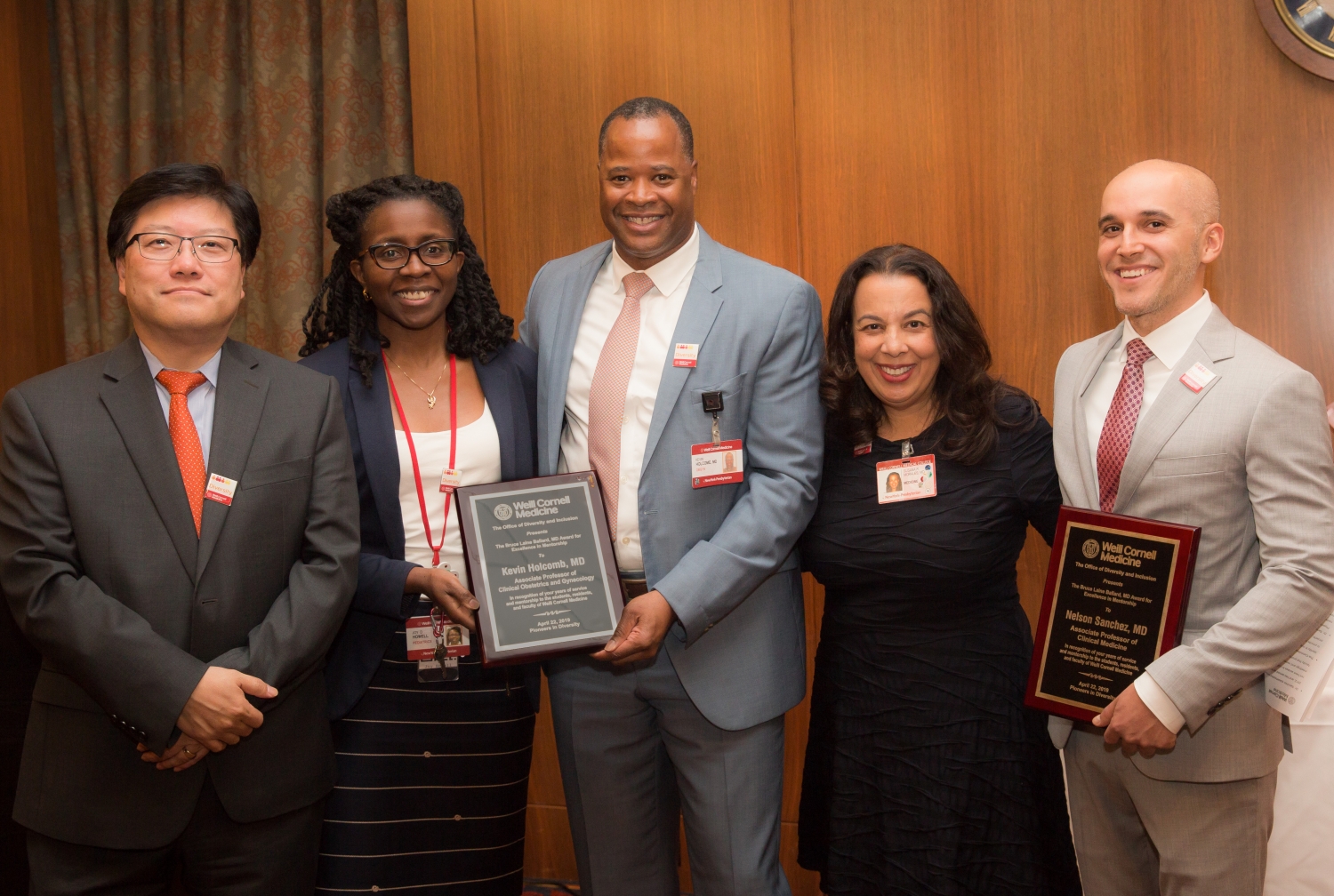For the third year in a row, Weill Cornell Medicine has been awarded the Health Professions Higher Education Excellence in Diversity (HEED) Award by INSIGHT Into Diversity magazine, in recognition of its outstanding commitment to diversity and inclusion.
INSIGHT Into Diversity, the largest and oldest diversity-focused publication in higher education, plans to highlight the winners of the award, which is presented annually to health professional schools and centers, in its December issue.
“The unprecedented events of 2020—the global pandemic and resulting economic crisis, and the movement for social justice and antiracism—make our action on diversity and inclusion more important than ever,” said Dr. Said Ibrahim, the senior associate dean for diversity and inclusion at Weill Cornell Medicine. “We are honored to be recognized for the third consecutive year, which reflects the breadth and the depth of Weill Cornell Medicine’s efforts, spanning all areas of our institution and making diversity and inclusion truly ingrained in our culture. This includes our pipeline programs for students as young as high school; recruiting and retaining diverse medical and doctoral student classes and faculty; programming; and research funding to address health disparities and equity.”
Over the past year, Weill Cornell Medicine has accomplished a range of diversity and inclusion initiatives, detailed in an annual report developed by the institution’s Office of Diversity and Inclusion. Beginning in the 2019-2020 academic year, the medical school launched a program to eliminate education debt for all medical students who qualify for financial aid to promote equality and access to medical education. Among the most recent entering class, 29 percent are from racial and ethnic populations that are underrepresented in the medical profession, a 5 percent increase from the previous year.
In the spring and summer, the Office of Diversity and Inclusion hosted weekly virtual Diversity Town Hall meetings, in response to the COVID-19 pandemic’s disproportionate effect on Black, Latino and disadvantaged communities. In response to reflective conversations from the town halls, and other meetings within the community, Dr. Augustine M.K. Choi, the Stephen and Suzanne Weiss Dean of Weill Cornell Medicine, put forward a list of immediate concrete steps and long-term plans to uphold the institution’s commitment to social justice and anti-racism.
Weill Cornell Medicine honored 15 faculty members, trainees, students and staff this year for their outstanding service and leadership in promoting diversity at the academic medical institution with the annual Diversity Awards. Included in these honors are the Dean’s Diversity and Healthcare Disparity Research Awards, which fund medical and other graduate students, postdoctoral students, residents and faculty to carry out research that seeks to improve the health of underrepresented populations and achieve health equity for people locally and globally.
In March, Dr. Joy Howell was named assistant dean for diversity and student life to oversee medical education pipeline programming, student service learning, health equity community efforts and other initiatives focused on enhancing the diversity of the medical student community.
The HEED award also recognizes Weill Cornell Medicine’s 15 pipeline programs aimed at recruiting underrepresented students into medicine. This includes the more than 50-year-old Travelers Summer Research Fellowship for pre-medical students, which earlier this year was recognized with the 2020 Inspiring Programs in STEM Award by INSIGHT Into Diversity magazine.
Strategic programs and policies to promote diversity in medicine and science have been in place at Weill Cornell Medicine since 1969, and Dr. Choi elevated diversity and inclusion as a crucial pillar of the institution’s mission. HEED recognized the institution in 2018 and 2019 for its array of efforts.
“We will continue to strive, both within and outside our walls, for greater diversity and inclusion,” Dr. Ibrahim said. “More than ever, ensuring that our academic medical institution is a leader in building more diversity in medicine and science has taken on even greater urgency and importance in 2020 for the future health and well-being of our society.”

